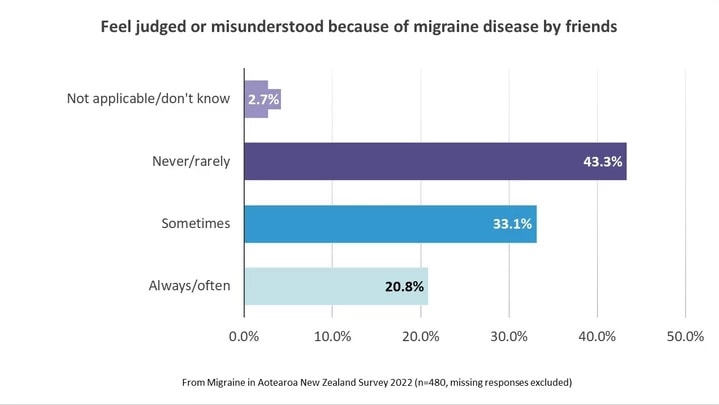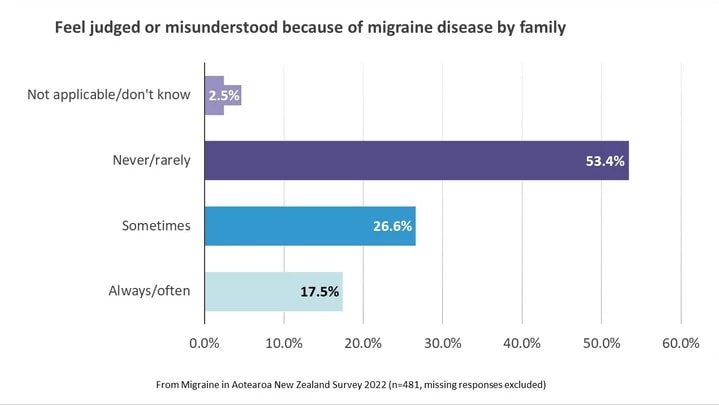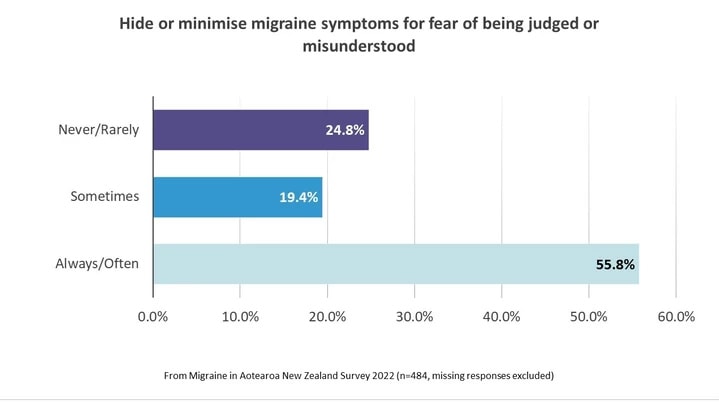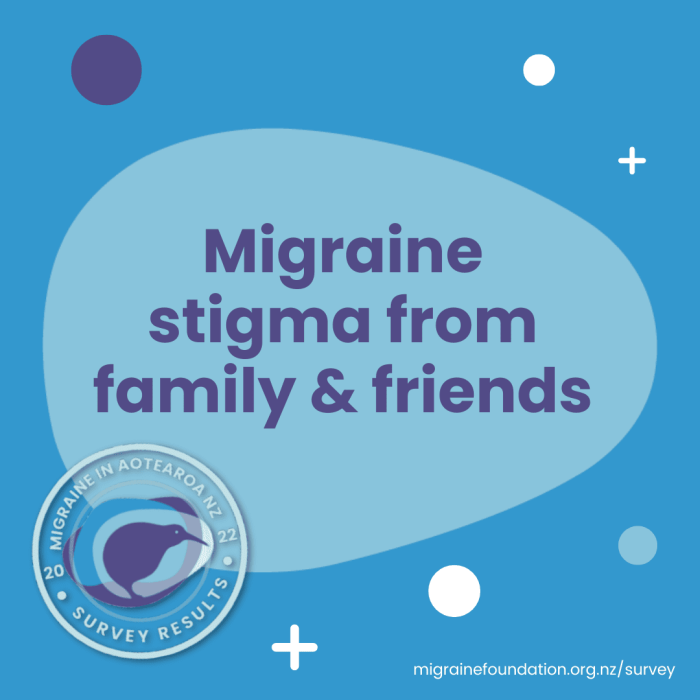Results from the Migraine in Aotearoa New Zealand Survey 2022
We talk about migraine as being a stigmatised disease, but what does that mean, exactly, and how many people experience stigma because of migraine in New Zealand?
The stigmatising of migraine began in the 18th and 19th centuries, when it became seen as a female or feminine disease, associated with a delicate constitution.¹ The lack of understanding of what causes migraine also led it to be misunderstood and neglected. In the last century, migraine has been considered to be a vascular disorder, a psychological or psychosomatic condition, caused by toxins, allergies or food intolerances or hormonal imbalances.² It’s only relatively recently that migraine has been accepted as a neurological disease and only in 1988 that the International Headache Society published criteria for the diagnosis of migraine.
All this to say, there is still a lot of misinformation and misunderstanding about the nature of migraine and what it means to live with migraine disease. Stereotypes and untruths about migraine and people with migraine abound – ‘it’s just a headache’, ‘it’s a woman’s disease’, ‘it’s caused by stress’, ‘it’s not a serious disease’, ‘it’s an excuse to get out of doing things’, ‘you’re malingering’, it’s your diet’, ‘it’s your personality’, ‘take a pill and get over it’. It’s this type of misinformation that can cause all sorts of people, including friends and family, to judge and make you feel bad when you have a migraine attack.
From the 2022 Migraine in Aotearoa New Zealand Survey, over half of respondents sometimes, often or always felt judged or misunderstood by friends because of their migraine disease; 44% felt this way from family. You might expect that the level of misunderstanding from family would be much lower, given that family members are more likely to witness the effects of migraine than friends.


The high level of misunderstanding from family could be because people with migraine often hide their symptoms, or pretend they’re okay when they’re not, out of fear of being judged, creating a perpetual cycle of stigma. From our survey, three-quarters of respondents reported hiding or minimising symptoms because of this fear. As one person said, “I feel like I live with a made-up illness, constantly having to over-explain myself and try to convince people that it’s a real condition.”

How to break this cycle? Firstly we need to address our own feelings of shame and disappointment about having a disease that affects how we want to live, and can have negative impacts on work, study and relationships. It’s common for people with migraine to internalise the stereotypes and judgments about them and come to believe that they’re to blame for an attack, they’re less worthy than other people or they’re making too much of it. Understanding that migraine is a neurological condition with a genetic basis can help. We don’t blame people with Parkinson’s for getting sick. We don’t tell people with multiple sclerosis to buck up and get on with it.
We can also start challenging the stereotypes and misinformation about migraine in society. This is one of the key objectives of Migraine Foundation Aotearoa New Zealand. You can help us by sharing your story, sharing the work we do, and supporting us financially. If you find it hard to talk to friends and family about your migraine disease, maybe start by sending them this article. Find out what they know and believe about migraine. Get a conversation going about why and when you hide your symptoms and what they could do to make it easier for you to be honest about how you’re really feeling. Most people don’t want to be judgmental jerks to those they care about. They might thank you for the opportunity to be a more informed and understanding human being.
Further reading
- The stigma of migraine, Practical Neurology
- Why don’t we know more about migraine?
- The impact of stigma on migraine, American Migraine Foundation
References
- Parikh, S. K. & Young, W. B. Migraine: Stigma in Society. Curr Pain Headache Rep 23, (2019).
- Foxhall, K. Migraine: A history. (Johns Hopkins University Press, 2019).


